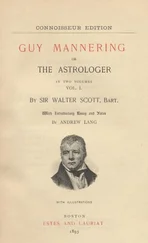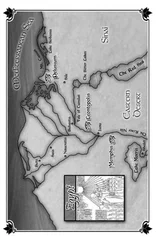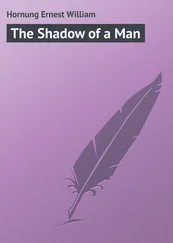“What can we ship bare?”
“I’d rather not ship any,” Mats said. “It depends on what we’re getting, of course.”
“Generally speaking.”
Mats shrugged. “Cutgrass usually travels well, and wideweb if it’s been rough-processed. Buyers tend to assume damage, though.”
“I’ll make you a copy of the list,” Tatian said, hand busy on the shadowscreen. “See what we can do if we get everything.”
“You’re optimistic,” Mats said.
“We might as well look at the best case,” Tatian answered, and flipped the data button across the desk to the other man.
Mats nodded, stuffing it into his pocket. “I’ll ask around, too, see if I can line up a few more crates before anyone hears about the deal. I can probably arrange to get another two or three.”
“That sounds good,” Tatian said. “Thanks.”
“No problem,” Mats answered, and levered himself up out of the chair.
Mem: (Concord) human being possessing ovaries, XX chromosomes, some aspects of male genitalia but not possessing testes; ρe, ρis, ρim, ρimself.
Warreven took the long way back to the Black Watch House and the seraaliste ’s office, over the hills of the mixed neighborhoods between the Estrange and the Glassmarket rather than along the Embankment and Harborside, not wanting to run the risk of meeting either Destany or ’Aukai. The discussion with Tatian had gone well, he thought—the off-worlder had seemed willing at least to consult with his superiors, and he’d certainly been interested in the surplus—but he knew ’Aukai would expect instant results, and he didn’t look forward to explaining that she’d have to wait a little longer. With any luck, he could avoid her completely, leave explanations to Haliday or Malemayn…. He sighed then. It didn’t feel right, supporting them in what was nothing more than long term trade—but then, it was their business, their choice, and they had a right to it. IDCA was treating them badly: that was the truth, not just a convenient way to get Tatian’s sympathy. It didn’t matter that he didn’t like or trust ’Aukai; she was in the right, this time, and he—or Haliday and Malemayn, since he’d been forced to resign the partnership—had an obligation to her.
It was a longish walk, through streets that were alternately prosperous and poor, shops and houses mixed with manufactories. Heat radiated from the open doors of the glassmaker’s sheds, and he could hear the dull rush of the fires inside. Most of them were using imported fuel now, and the emptied plastic cylinders clogged the alleys, waiting for the salvagers’ trucks. The air smelled of glass and spilled oil, and he had to step carefully around puddles where the chemicals that colored the glass had run into the street. On Grantpas Street, half a dozen women—no, he realized, with a sudden shock, at least three of them were herms, and the rest looked more like fems, long-legged and narrow-hipped, all in a mix of traditional or off-world clothes that made no pretense of concealing their anomalous bodies—sat or stood along the back wall of the Blue Watch House. Their goods, quilts and clothes and bright coarsely knotted caps, spread out on the paving in front of them. There were no children in sight—unusually; the vendee generally brought their offspring with them and let them earn their keep—but then he saw a single light-haired toddler clinging to the leg of one of the herms. The sunlight shone on the piled silks, tunics and trousers, and vests in all the colors of the rainbow, and from the bed quilts hung against the blond brick wall behind them, but no one stopped to buy. On the wall above their heads, a painted Madansa spread her hands, displaying painted bounty: this was a recognized market, then, but one with- out customers.
That was almost unprecedented, and he looked around, curious and wary. The short street that led into Swetewater Square where the Blue Watch’s main market was held was clear; nothing blocked passage between the two areas, but there were mosstaas by the barred side door of a spicery. One of the pair held a camera conspicuously in his hands, trained on the market women. Warreven slowed his pace, pretending to examine the nearest quilt—blue and gray and gold, the sort of colors that Folhare loved to play with—and saw the cameraman work his controls, recording him. He looked back at the quilt and saw the nearest woman looking at him, a sour expression on her face.
“What’s all this, then?” he asked, and tilted his head toward the cameraman.
The woman—herm, really, the shape confirmed by the off-world clothes—stared back at him, her expression unchanging. “ Mosstaas , serray. Do you want to buy?”
The off-world term was a small shock. Warreven blinked, and a second woman—a fem, this time, traditional skirts falling lank from her waist—stepped hastily forward.
“Mir Warreven, isn’t it? You spoke for me in small-court last year. Secontane—Casnot, of the Barres mesnie . Black Casnot.”
Warreven nodded. He remembered the case, though he wouldn’t have recognized her out of the off-world clothes she had been affecting then. “What’s going on?”
“We—we’re all part of the Newfolk Cooperative—we got kicked out of the Swetewater market because we wouldn’t dress appropriately—”
“Wear traditional clothes,” the first woman interjected. Face and voice were bitter.
“—and then the mosstaas showed up,” Secontane continued, with a minatory look at her friend. “They started taking pictures, and of course no one wants to buy under those circumstances. Not even the off-worlders are interested now.”
“Who sent them?” Warreven asked. “The market keeper?”
“Probably,” the first woman muttered.
Secontane shook her head. “I don’t think so. We worked hard to get this space—I thought, we all thought, it was a good compromise. The Watch gets a traditional market, and we still get a space. They just showed up.”
Warreven sighed, squinted at the pair still lurking in the shadows of the doorway. It was not, strictly speaking, his business—but she’s of my Watch, and I will be damned before I let them get away with this. “Let me see what I can do,” he said, and started toward the mosstaas without waiting for an answer.
“Spirits go with you,” someone—not Secontane, and not her friend—murmured after him.
The mosstaas with the camera lifted it even higher as he approached, training the round dark eye of the lens on him. A targeting light glowed red in its depths, signaling that the machine was on and recording. Warreven smiled cheerfully into it. “Who’s in charge here?”
“I am.” That was the man without the camera.
At his words, the cameraman lowered his machine, and the light flicked off behind the lens. Warreven looked at them—backcountry boys from the Peninsular mesnie s, by the look of them, unhappy and out of place in the big city—and said, “What’s your authority for this?” He pointed to the camera.
The cameraman glanced warily at his senior, a single betraying glance, and the other man cleared his throat. Warreven could see his eyes move, flicking across the metal bracelets and necklaces as well as the body beneath the loose clothes, and was glad he had worn his full regalia. “My own authority, mir.” The honorific came reluctantly, but it was there. “We’re encouraged to use our initiative.”
“The marketkeepers have agreed these women can use this space,” Warreven said. “By law and custom, you have no right to interfere.”
“These—people—are potentially troublemakers,” the mosstaas answered. “It’s my responsibility to keep the peace.”
Читать дальше












